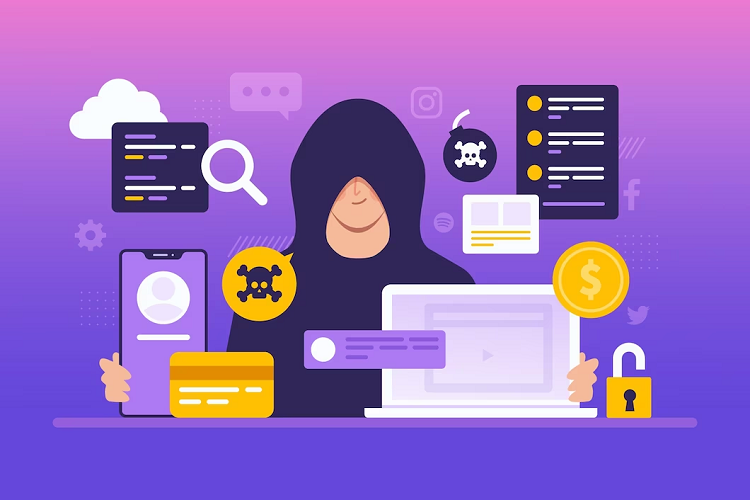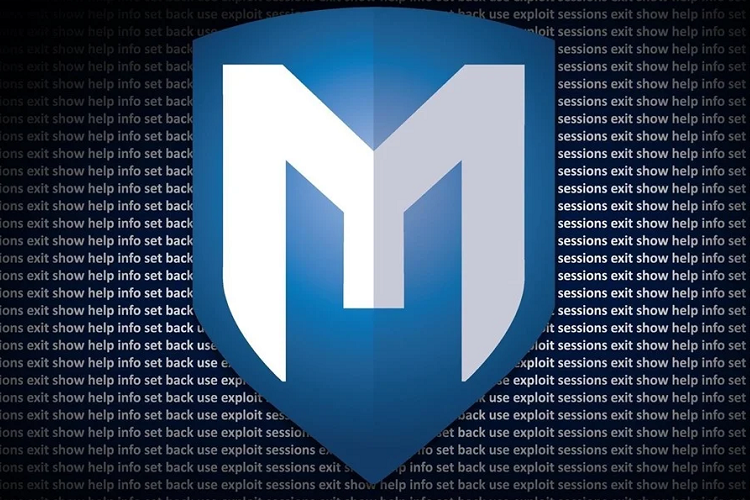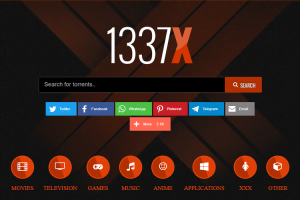Discover the best ethical hacking tools for enhancing cybersecurity practices.
Explore a curated collection of cutting-edge tools essential for ethical hackers. Uncover versatile solutions that empower professionals to assess and enhance system security. From network analysis to vulnerability assessment, these resources facilitate responsible and legal hacking practices. Elevate your cybersecurity skills with the finest ethical hacking tools available in the digital landscape.

What is Ethical Hacking?
Ethical hacking, also known as penetration testing or white hat hacking, refers to the practice of deliberately and legally probing computer systems, networks, applications, and other digital assets for security vulnerabilities. The goal of ethical hacking is to identify weaknesses and vulnerabilities in these systems before malicious hackers can exploit them. Ethical hackers, often referred to as “white hat hackers,” use their skills and tools to find vulnerabilities and provide recommendations for improving security measures.
Importance of Ethical Hacking in Cybersecurity
Ethical hacking plays a vital role in the field of cybersecurity by helping organizations identify and address vulnerabilities in their systems, networks, and applications before malicious actors exploit them. By identifying vulnerabilities and weaknesses, ethical hackers enable organizations to strengthen their defenses, reduce risks, and maintain the confidentiality, integrity, and availability of their digital assets. It’s a proactive and preventive approach to maintaining the security and integrity of digital systems and data.
Top 10 Most Popular Ethical Hacking Tools
In this blog post, we will explore some of the best ethical hacking tools out there, used by ethical hackers to enhance cybersecurity practices and protect businesses from cyber threats.
1. Nmap (Network Mapper): Scanning Networks for Vulnerabilities

Nmap is a powerful network scanning tool that allows ethical hackers to discover hosts, services, and open ports on a network. By identifying potential entry points, organizations can proactively secure their network infrastructure and mitigate vulnerabilities.
2. Metasploit: Comprehensive Penetration Testing Framework

Metasploit is a widely used penetration testing framework that provides a comprehensive set of tools for identifying and exploiting vulnerabilities in systems and applications. Ethical hackers leverage Metasploit to assess the security posture of networks, servers, and web applications, enabling organizations to patch vulnerabilities and enhance their defenses.
3. Wireshark: Analyzing Network Traffic in Real-Time

Wireshark is a network protocol analyzer that enables ethical hackers to capture and analyze network traffic in real-time. By examining network packets, organizations can detect malicious activities, identify potential security breaches, and implement appropriate safeguards to protect their sensitive data.
4. Burp Suite: Web Application Security Assessment
Burp Suite is a web vulnerability scanner and testing tool commonly used by ethical hackers to assess the security of web applications. It helps identify common vulnerabilities like cross-site scripting (XSS), SQL injection, and insecure direct object references. By addressing these vulnerabilities, organizations can fortify their web applications against potential attacks.
5. OWASP ZAP (Zed Attack Proxy): Identifying and Exploiting Web App Vulnerabilities
OWASP ZAP is an open-source web application security scanner designed to identify and exploit security vulnerabilities. Ethical hackers leverage OWASP ZAP to perform automated scans, detect vulnerabilities, and generate detailed reports to guide organizations in remediating security flaws.
6. Aircrack-ng: Assessing Wireless Network Security
Aircrack-ng is a suite of tools used for wireless network security assessments. Ethical hackers utilize Aircrack-ng to assess the security of Wi-Fi networks, detect weak passwords, and perform wireless packet sniffing. This tool enables organizations to identify and rectify potential weaknesses in their wireless network configurations.
7. John the Ripper: Evaluating Password Strength
John the Ripper is a widely used password cracking tool employed by ethical hackers to test the strength of passwords. By uncovering weak or easily guessable passwords, organizations can enforce stronger password policies and enhance their overall security posture.
8. Hashcat: Advanced Password Recovery and Cracking
Hashcat is a powerful password recovery and cracking tool that supports a wide range of hashing algorithms. Ethical hackers use Hashcat to crack password hashes, helping organizations identify weak passwords and implement stricter authentication mechanisms.
9. PwnTillDawn CTF: Penetration Testing Lab & Offensive Security CTF
PwnTillDawn CTF, developed by wizlynx group, is a Capture the Flag (CTF) platform that allows ethical hackers to test their skills in a controlled environment. It provides a range of challenges and scenarios that simulate real-world cybersecurity incidents. Ethical hackers can leverage PwnTillDawn CTF to enhance their practical knowledge, stay updated with the latest attack techniques, and sharpen their skills in a safe and controlled environment.
10. Tenable Nessus: Vulnerability Scanner
Tenable Nessus is a widely used vulnerability scanner that helps organizations identify and manage security vulnerabilities in their networks, systems, and applications. It’s one of the most popular tools in the field of cybersecurity and plays a crucial role in maintaining a strong security posture.
Leveraging Ethical Hacking Tools for Enhanced Cybersecurity
In conclusion, ethical hacking, supported by powerful and reliable hacking tools, is a vital component of a robust cybersecurity strategy. However, it is important to note that ethical hacking should always be conducted within legal and ethical boundaries, with proper authorization and adherence to applicable laws and regulations.
By employing tools like the ones above and exploring platforms like PwnTillDawn CTF, individuals and personnel can strengthen their skills and proactively identify vulnerabilities, secure their networks and applications, and protect sensitive data from cyber threats.
Organizations are encouraged to engage certified ethical hacking professionals or partner with reputable cybersecurity firms to ensure the effectiveness and integrity of their ethical hacking initiatives.
To elevate your cybersecurity practices and protect your business from evolving threats, consider leveraging the expertise of wizlynx group. As a trusted cybersecurity provider, they possess the knowledge, experience, and tools to perform ethical hacking assessments, identify vulnerabilities, and guide your organization towards a stronger security posture. Contact wizlynx group and learn how our ethical hacking services can enhance your cybersecurity practices and safeguard your business from emerging cyber threats.
Ethical Hacking Tools FAQs
Here are some answers to frequently asked questions about ethical hacking tools:
What are ethical hacking tools?
Ethical hacking tools are software applications and utilities used by security professionals to identify vulnerabilities, assess security measures, and test the resilience of computer systems, networks, and applications. These tools simulate real-world attack scenarios in a controlled and authorized environment.
Are ethical hacking tools legal to use?
Yes, these tools are legal to use when used within authorized and controlled environments with proper permission from the system owner. Unauthorized use of hacking tools can have legal consequences.
Are ethical hacking tools only used by professionals?
While tools are primarily used by cybersecurity professionals, they can also be employed by individuals who are learning about cybersecurity, as long as they do so responsibly and ethically.
How do ethical hackers obtain authorization to use these tools?
Ethical hackers obtain authorization by obtaining written consent from the owner of the system or network they intend to test. This can involve formal agreements and legal documentation to ensure that all parties are aware of the testing scope and conditions.
What’s the difference between ethical hacking tools and malicious hacking tools?
These tools are used for legitimate security testing with authorization, while malicious hacking tools are intended to compromise systems and networks without permission. The intent and authorization are the key differences.
Do all ethical hacking tools require coding skills?
Not all tools require coding skills. Many tools have user-friendly interfaces and graphical interfaces that allow users to perform tasks without in-depth coding knowledge. However, some advanced tools might require scripting or coding expertise.
Are these tools only used for penetration testing?
Ethical hacking tools are commonly associated with penetration testing, but they can also be used for various other purposes, such as vulnerability scanning, network monitoring, forensics, and secure coding practices.
Are all ethical hacking tools open source?
No, not all hacking tools are open source. There are both open-source and commercial ethical hacking tools available. Some tools offer free versions with limited features, while others are paid and offer more advanced capabilities.
Can hacking tools guarantee 100% security?
No tool can guarantee 100% security. These tools are part of a comprehensive cybersecurity strategy, and their effectiveness depends on factors such as tool accuracy, user expertise, and the evolving nature of cyber threats.
Is certification necessary to use ethical hacking tools?
While certification isn’t mandatory to use these tools, obtaining certifications like Certified Ethical Hacker (CEH) or Offensive Security Certified Professional (OSCP) can validate your skills and knowledge in ethical hacking, making you more credible in the field.


